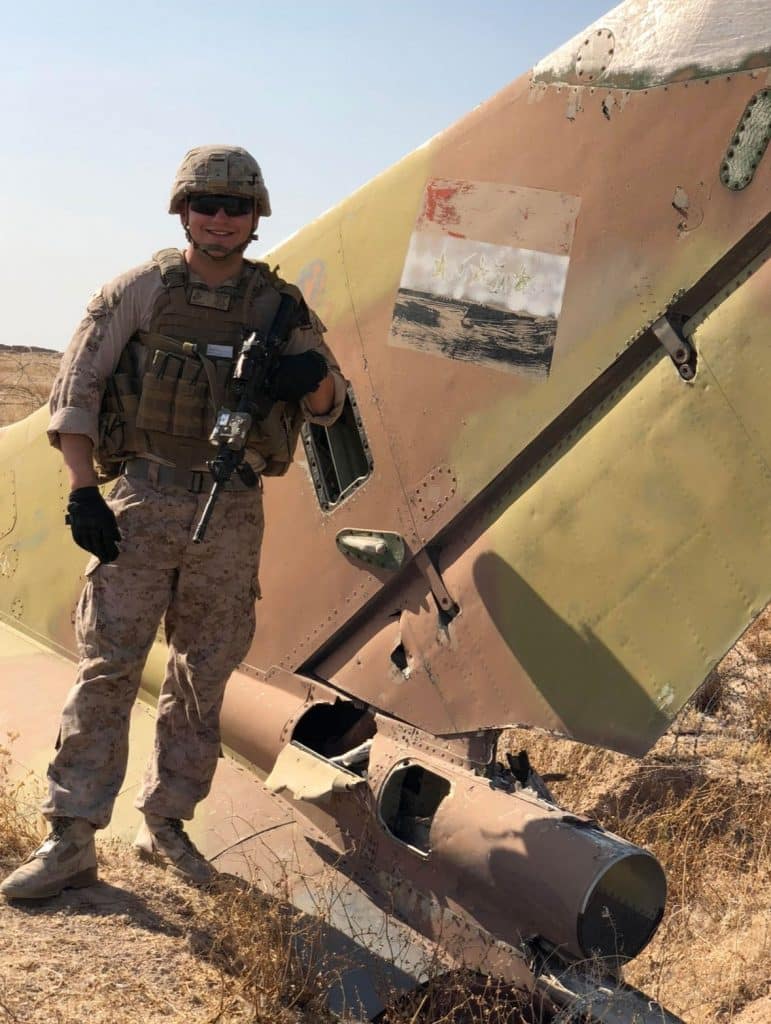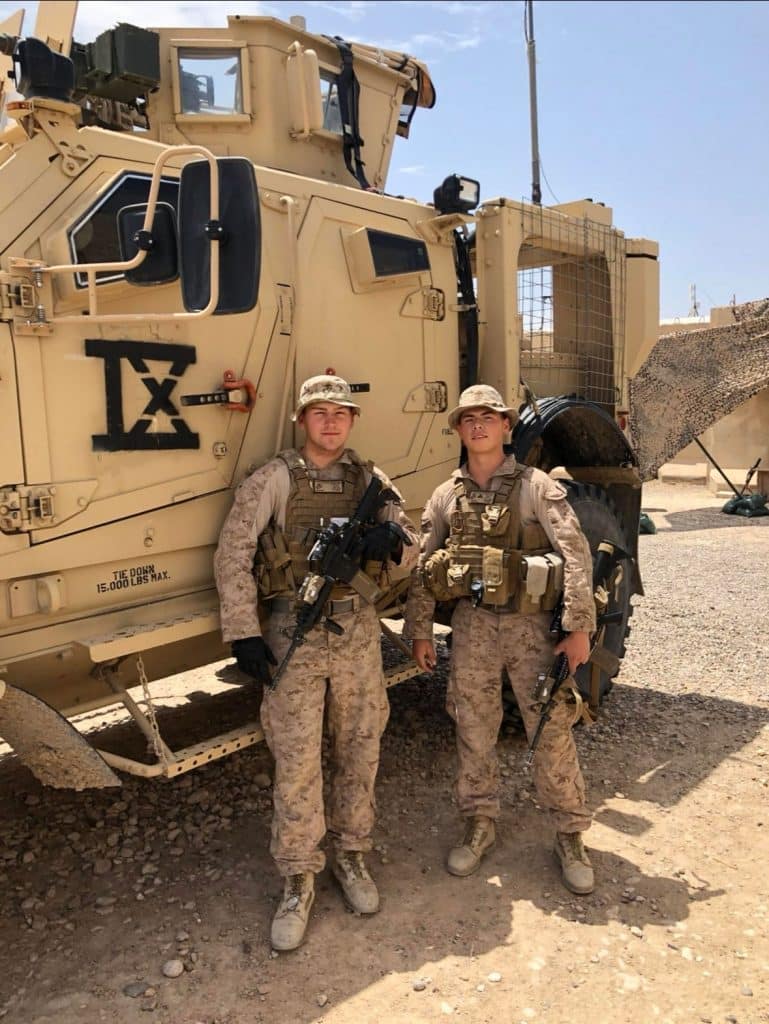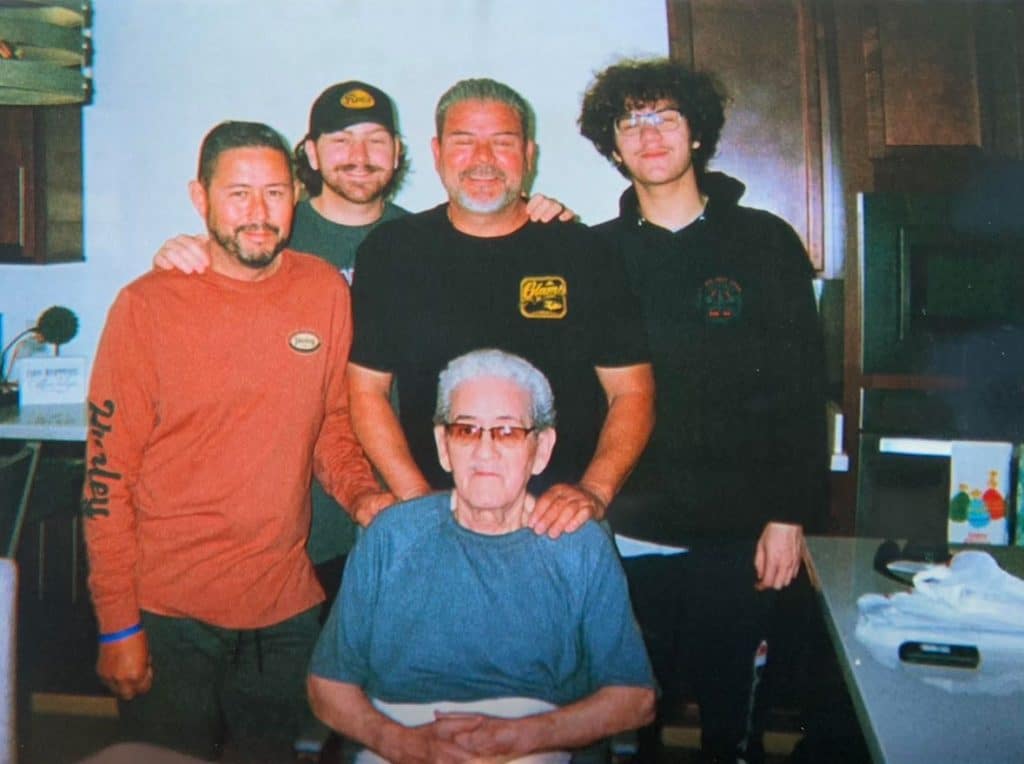*Editor’s Note: The “Views from NAU” blog series highlights the thoughts of different people affiliated with NAU, including faculty members sharing opinions or research in their areas of expertise. The views expressed reflect the authors’ own personal perspectives.
By Nick Avelar
U.S. Marine Corps veteran Nick Avelar is a fourth-year student majoring in criminal justice and minoring in international studies.
It always goes back to my dad.
Growing up, my mom wasn’t in the picture, so my dad had to work very hard to support me and my two brothers. He did various hard-labor construction jobs and then became a truck driver for Budweiser. One day, when I was about 5 or 6, he fell off the back of his truck and compressed all the discs in his back. After three surgeries and 16 or 17 more years of working, he wasn’t able to stand upright without a cane. He’d leave for work at midnight, drive to the doctor for a cortisone shot in the middle of his shift, then come back and work until 3 or 4 p.m.

I wasn’t the smartest high school student. When I got my test scores back, they told me I really only qualified for admin, motor transport and infantry. I grew up in an almost all-male household and got a thick skin from that, so kicking in doors and shooting guns sounded good to me.
Boot camp was hard at first. I was out at School of Infantry West at Camp Pendleton, and it was the longest I’d ever been away from my family and friends in the West Valley. But I kept my head down and pushed forward until graduation. Then I was assigned to 1st Battalion 7th Marines out of Twentynine Palms for an 18-month workup as an infantry rifleman. The other guys kept telling us, that’s where real infantrymen are made. I got real comfortable with getting uncomfortable. When you’re lifting a pack that’s over 100 pounds, carrying it from sundown to sunup and becoming more and more sleep-deprived, you learn the human mind is even stronger than the human body.
My team leader became hospitalized toward the end of my workup, and I took over. I was 20, and I had about 14 people reporting to me.
Then I got deployed to Iraq in 2019, quick reaction force for adjacent units and security force for a small camp out there. I became a vehicle commander, engaging with the Iraqi forces with our linguist, Mo, over tea and cigarettes. All of them said what they wanted most was for life to feel normal. They wanted the life we had in the United States, the freedoms we enjoyed. It was an eye-opening experience. I didn’t want to waste my freedom. My dad worked so hard to give it to me.

The veteran community here is awesome. Back in sophomore year, in English class, a guy caught my eye from across the classroom and said, “Hey, man, are you a vet?” After class, he walked me over to the Veteran Success Center and introduced me to the director, Pete Yanka. They’ve helped me get set up with classes, and they’ve introduced me to so many friends at NAU and in Flagstaff. It’s one giant connected community.
I built a 10-year timeline, and I’m about one year out from completing it. One year away from becoming the first person in my immediate family to graduate from college. And it goes back to those values my dad taught me. He said, “I don’t care what you want to do for a living, you can clean out gutters for the rest of your life, as long as you have a degree to fall back on.” He told me to look down the road of where you want to be. It might be far away, but as long as you have goals in place to achieve what you set out to do, and you keep checking off those goals, it doesn’t seem so unattainable.



